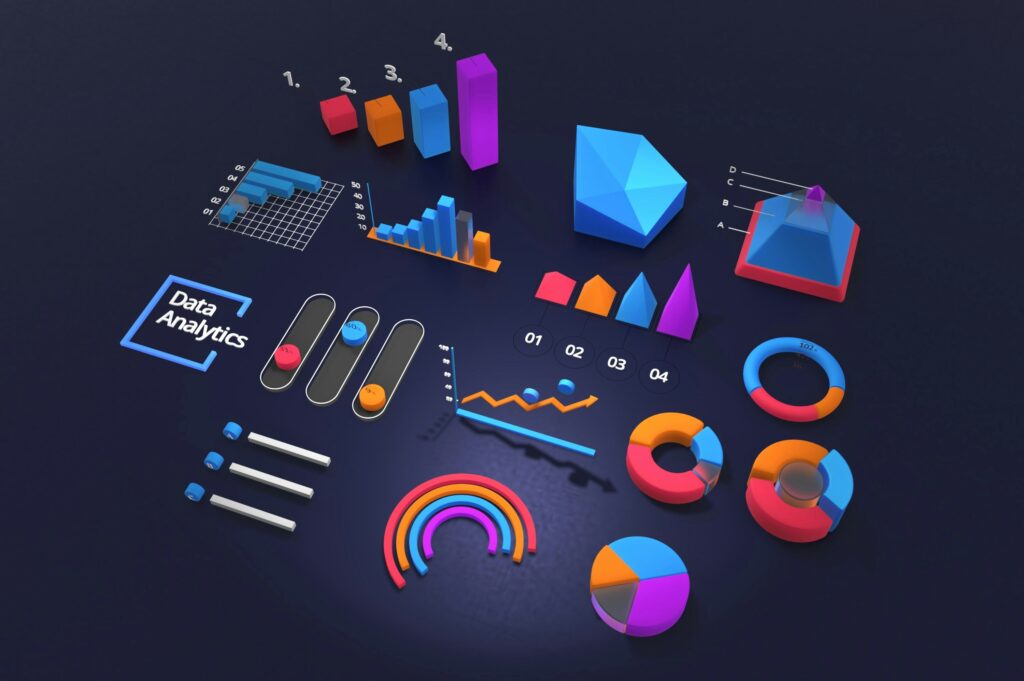In today’s fast-paced, technology-driven world, digital marketing has emerged as the main force, surpassing traditional marketing methods in both effectiveness and reach. While traditional marketing strategies such as print ads, television commercials, and direct mail still have their place in a marketing strategy, digital marketing offers numerous advantages that make it a more attractive option for many businesses in today’s day and age. Below we’ll go more in depth as to why digital marketing is often considered superior to traditional marketing.
1. Greater Reach and Accessibility
Digital marketing provides greater access to a global audience. Unlike traditional marketing, which may be limited by geographical location and media availability, digital platforms such as social media, search engines, and email allow businesses to reach potential customers anywhere in the world. With billions of users online, digital marketing offers a vast and diverse audience, enabling businesses to enlarge their reach far beyond the confines of local or regional markets.
2. Cost-Effectiveness
One of the most significant advantages of digital marketing is its cost-effectiveness. Traditional marketing methods, such as television, print marketing, and radio, often require substantial budgets which can be a problem for small to medium-sized businesses. In contrast, digital marketing channels, such as social media advertising, email campaigns, and paid search advertising, can be implemented at a fraction of the cost. This affordability allows businesses to achieve significant results without the need for large financial investments.
3. Targeted Advertising
Digital marketing excels in its ability to target specific audiences so you can reach exactly who you want to. Through sophisticated targeting options on platforms like Google Ads and Meta Ads, businesses can reach individuals based on their demographics, interests, behavior, and even past interactions with the brand. This level of targeting ensures that marketing efforts are directed at individuals who are more likely to be interested in the product or service, leading to higher engagement and conversion rates.

4. Real-Time Analytics and Measurement
Another significant advantage of digital marketing is the ability to track and measure performance in real-time. With traditional marketing, assessing the effectiveness of campaigns can be challenging and often requires significant time and effort. Digital marketing tools provide immediate access to detailed analytics, allowing businesses to monitor metrics such as website traffic, click-through rates, conversion rates, and ROI. This data-driven approach enables businesses to make informed decisions, optimize campaigns on the fly, and achieve better results.
5. Enhanced Engagement and Interaction
Digital marketing fosters a higher level of engagement and interaction with your targeted audience. Social media platforms, blogs, and interactive content allow businesses to connect directly with their audience in meaningful ways, encouraging conversations, feedback, and user-generated content. This high level of interaction not only strengthens customer relationships but also builds brand loyalty and trust. In contrast, traditional marketing often involves a one-way communication channel, limiting opportunities for engagement, while potentially losing out on a vast majority of consumers.
6. Flexibility and Adaptability
Digital marketing offers unparalleled flexibility and adaptability. Campaigns can be quickly adjusted or refined based on performance data and changing market conditions. Whether it’s tweaking ad copy, shifting targeting parameters, or adjusting budgets, digital marketing allows for rapid changes that can optimize results and address emerging trends. Traditional marketing, on the other hand, often involves longer lead times and less flexibility, making it more challenging to adapt to changes in the market.

7. Improved Customer Insights
Digital marketing provides valuable insights into customer behavior and preferences. Tools like Google Analytics, social media insights, and email marketing metrics offer detailed information about how customers interact with your brand, what content resonates with them, and how they prefer to engage. These insights enable businesses to tailor their marketing strategies more effectively, create personalized experiences, and drive better results.
8. Higher Conversion Rates
The ability to track and optimize campaigns in real-time, combined with targeted advertising and enhanced engagement, often leads to higher conversion rates with digital marketing. Businesses can employ strategies such as retargeting, personalized content, and optimized landing pages to drive more conversions on a company’s website. Traditional marketing methods, while still effective in certain contexts, often lack the precision and urgency that digital marketing offers.
In conclusion, while traditional marketing methods definitely have their merits, digital marketing provides a range of advantages that make it a powerful tool for businesses seeking to expand their reach, optimize their budgets, and engage with their audience in new and exciting ways. With its cost-effectiveness, targeted advertising, real-time analytics, and enhanced engagement opportunities, digital marketing has firmly established itself as a preferred choice for modern businesses looking to thrive in a competitive landscape.
- How to Identify Your Target Audience in Digital Marketing - October 25, 2024
- Why Digital Marketing Outperforms Traditional Marketing - August 15, 2024
- Leveraging Geo Targeting/Location Based - June 13, 2024


0 Comments